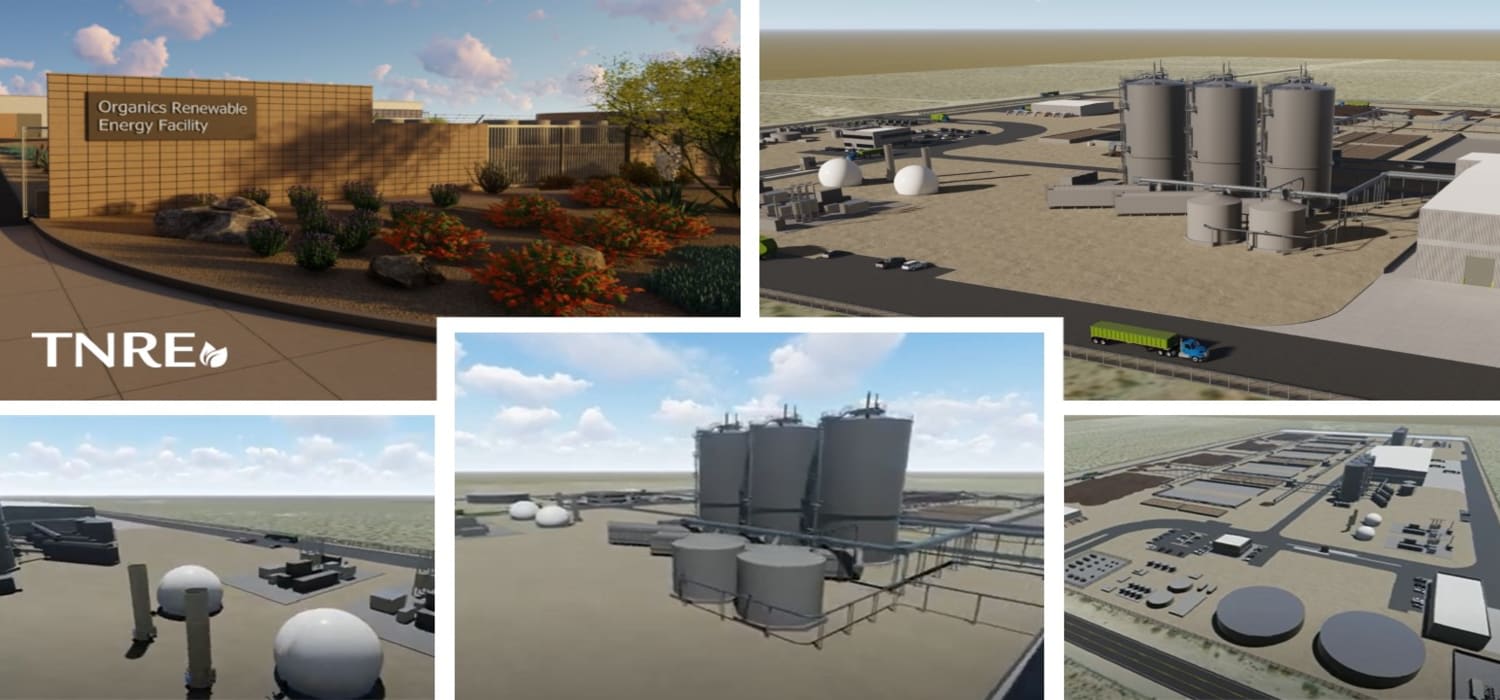
For Immediate Release: True North Renewable Energy, LLC (TNRE) has obtained its Conditional Use Permit in Kern County, California for the Kern Organics Renewable Energy Facility.
TNRE was successful in obtaining a Conditional Use Permit (CUP Case No.69, Map 213) with the Kern County Board of Supervisors to construct a large-scale anaerobic digestion facility with biogas upgrading capacity to inject pipeline grade renewable natural gas and on-site advanced composting operations. This project will enable SB 1383 diverted organics to be processed in a sustainable way, with state-of-the-art infrastructure to handle 300,000 tons per year (1,000 ton per day) of organic material, including: food scraps, organic scraps removed from municipal solid waste, yard trimmings, green waste, compostable material (i.e., vegetable, yard, etc.), commingled food and green waste, industrial commingled food, packaged food waste from groceries and retail stores, and liquid waste (i.e., residual moisture/liquids generated from solid municipal waste and food waste).
The Kern Organics Renewable Energy Facility will offer a processing solution that handles commingled organic streams, from both residential and commercial sources. This facility is an integrated anaerobic digestion and advanced composting system, producing pipeline quality renewable natural gas as well as compost, providing a nutrient alternative for the robust Kern County agricultural market. Prior to the issuance of building and grading permits, TNRE will fully comply with the expectations, conditions and compliance components set forth by Kern County during construction and operations. Construction at the Kern facility is scheduled to begin in 2024 and be operational by 2027.
TNRE believes the construction of the Kern Organics Renewable Energy Facility will be an economic boost for Kern County creating new, green jobs and capacity-building to support SB 1383 efforts in a rural jurisdiction. Given the urgency of climate change and the need to quickly reduce short lived climate pollutant (SLCP) emissions, project developers like TNRE are ready to provide the infrastructure needed to meet California's organics diversion targets and climate goals.
Gary Aguinaga, President of TNRE said “TNRE’s goal is to provide state-of-the-art, large-scale, regional organics processing facilities and we are thrilled to partner with Kern County in this endeavor to provide world-class organics recycling capabilities. TNRE recently achieved a major milestone for the project by being awarded a Conditional Use Permit (CUP) following an extensive two-year application process. We would like to thank Kern County for their ongoing support of this project and the message it sends to the State regarding the importance of achieving required permits for facilities aiding climate action. More facilities like TNRE’s Kern County organics-to-energy facility will be required if California is to meet its methane reduction targets and supply renewable natural gas to meet renewable energy needs. I would also like to emphasize that developing and constructing new infrastructure (for example, anaerobic digestion or advanced composting) will require securing organic waste feedstock agreements today to prepare for higher food diversion rates in the future.”
True North Renewable Energy, LLC (TNRE)
TNRE develops, owns, and operates state-of-the-art organics-to-renewable energy facilities, including large scale, regional high-solids anaerobic digestion (AD) infrastructure. These facilities reuse and repurpose organic resources diverted from landfills to create beneficial, sustainable products, including biomethane and soil-amending compost.
TNRE is developing two additional facilities in Imperial County, CA and Yuma County, AZ. Each facility will be capable of processing up to 600,000 tons per year of organic material, producing up to 1,000,000 MMBtu/y (8MM DGE/y) of Renewable Natural Gas and reducing pollutants by 160,000 MT of CO2e/y (35,000 passenger vehicles per year equivalent). Each of these facilities requires an investment of over $250MM and will make a significant contribution toward providing the infrastructure needed for California to meet its climate goals. TNRE is already well advanced in the permitting process of these sites and expects the first facility to be under construction in 2025 and operational in early 2027.
Accelerating investment in anaerobic infrastructure and advanced composting will enable California effectively address methane reductions and achieve lofty climate goals and reduction of greenhouse gas emissions. TNRE believes in accelerating the deployment of clean energy technologies, reducing global emissions, lowering energy prices, and strengthening the economy by enabling a reliable and affordable energy sector.
Please direct any inquiries or interest in supplying feedstock material to Jim Philipps, VP of Business Development. To learn more about TNRE, please visit www.tnrenewableenergy.com